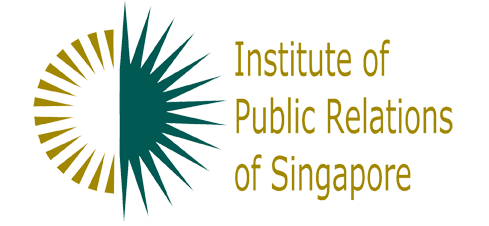"Bilingual Win-Win" - The Role of Language and Culture In Public Relations
The IPRS was delighted to be the Supporting Agency for a talk by industry veteran, Ms Liu Xiaowei titled "Bilingual Win-Win" - The Role Of Language And Culture In Public Relations, held in conjunction with the inaugural City Reading Festival organised by the Chinese Media Group under the SPH Media Trust.
Ms Liu is the author of 公关生涯 (PR Career). She shared the cultural importance of language in communication and public relations. She presented cases and short stories, to highlight the concept of “bilingual win-win” to encourage the young generation in Singapore to make good use of their own human and geographical advantages to advance their careers. The talk was moderated by Ms Ho Yueh Mei.
Key points of the talk “Bilingual – Win – Win”
She started the talk with naming and branding. Naming is key for the brand and branding of a company. She cited examples of famous brand such as Coca Cola, whose Chinese name is translated so well as 可口可乐, literally mean “good for your taste buds and hence bringing happiness”, and it sounds ramming as well! She also talked about her former employer Shell’s name in Chinese, and why it has two different Chinese names. In Hongkong and Southeast Asia, its Chinese name is Hien Ho, a translation of shell in Cantonese, and it has been used as long as Shell’s creation in late 1890s in Asia. While in mainland China, Shell’s operation was interrupted from 1950s and Shell returned to mainland China in 1980s when the country opened for foreign investment. Shell was then unknown to the market. Shell consulted Chinese professors from Beijing University for a good and proper translation of its name, and for re-establishing its brand in mainland China. The Beijing professor suggested Qiao Pai, as the character of shell in Chinese has two meaning. A soft shell as in eggshell is pronounced as KE, while a hard shell as in earth crest is read as Qiao. As the energy business related to geophysics, the professor advised the Chinese name to be Qiao Pai, literally means Shell Brand.
Xiaowei also shared anecdotes of translating Group senior executives from UK and Netherlands into proper Chinese names, which helps building rapport with senior Chinese officials, who apparently appreciated the efforts taken and the respect shown for Chinese culture. So, naming at both company as well as personal level do matter from brand building and stakeholder relation building perspective.
Xiaowei then shared experiences in managing crisis and business deals, where understanding of the local culture context matters a lot in terms of managing the complexity and nuisances of stakeholders’ expectations.
When acquiring a local lubricant business in China in 2006, considering the public sentiment and the need for approval by the central government to the deal, plus the need to help the internal business colleagues to appreciate the rationale of the deal, Xiaowei worked with the impacted business to come up with a “one family, two brothers’ brand positioning. In the Chinese context, it was easily understood that the two brands are different yet associated post the deal, just like two brothers in one family. This helps easing the perception one is better than the other, while appeasing the sentiment of a MNC buying out a local brand. Language is more than words, it conveys the intention of the company and its brand message towards the stakeholders, in this case, the government, the customers, the sales teams on both sides and the general public.
Xiaowei also shared the challenges of working in a MNC where there is the global-local tension. In a global brand campaign of “real energy for the real world”, the Chinese translation of ”能源之道“(the ‘Tao of Energy’ as a back translation) did not sound like the English at all, but it made perfect sense to the Chinese audiences without a need of explanation. Going deeper, it resonated with the English “real energy for the real world’ which intended to say that world needed all solutions to address the energy trilemma and the solutions include both the various sources of energy as well as the way we produce, use and manage energy, e.g. Tao in Chinese. It was a huge success in the local market, though it did require some convincing discussion with the headquarter.
Xiaowei concluded the talk by sharing two quotes:
“One language sets you in a corridor for life. Two languages open every door along the way.” – Frank Smith
"一种语言限定了你的发展方向,两种语言就在沿途为你打开每一扇门。”——弗兰克·史密斯
“If you talk to a man in a language he understands, that goes to his head. If you talk to him in his language, that goes to his heart.” – Nelson Mandela
"如果你跟一个人用他听得懂的语言说一件事,那这件事就听进他的头脑里,但是如果你用他的语言说一件事,那就被听进他的心里.” 纳尔逊·曼德拉
Her reflection is that we in Singapore are in a privileged position as a multi-racial and multi-cultural nation, and with a regional hub positioning. Her advice to Singaporean is that each of us need to be at least bi-lingual, good with your mother tongue and English as a working language, and it is the competitive advantage for Singapore whose one proud asset is its people and talent.
IPRS Secretariat


